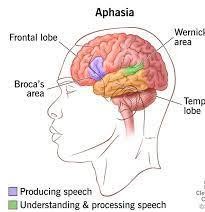Which question should the nurse ask when assessing a 60-year-old patient who has a history of benign prostatic hyperplasia (BPH)?
"Have you been experiencing any difficulty in achieving an erection?"
"Have you noticed any unusual discharge from your penis?"
"Has there been a decrease in the force of your urinary stream?"
"Has there been any change in your sex life in the past year?"
The Correct Answer is C
Choice A rationale: This question is not relevant to BPH, as erectile dysfunction is not a common complication of this condition. Erectile dysfunction can have other causes, such as cardiovascular disease, diabetes, medications, psychological factors, or aging.
Choice B rationale: This question is not relevant to BPH, as penile discharge is not a symptom of this condition. Penile discharge can indicate an infection, such as sexually transmitted diseases, urinary tract infections, or prostatitis.
Choice C rationale: BPH is a condition that causes enlargement of the prostate gland, which can obstruct the flow of urine and cause symptoms such as difficulty in starting or stopping urination, weak or intermittent stream, dribbling, and incomplete bladder emptying. Asking about the force of the urinary stream can help assess the severity of BPH and the need for treatment.
Choice D rationale: This question is not relevant to BPH, as sexual function is not directly affected by this condition. However, some men with BPH may experience reduced libido or satisfaction due to urinary symptoms or psychological distress.
Nursing Test Bank
Naxlex Comprehensive Predictor Exams
Related Questions
Correct Answer is A
Explanation
Choice A rationale: The frontal lobe, specifically Broca's area located in the dominant hemisphere, is responsible for expressive speech. Damage to this area can result in expressive aphasia or difficulty expressing speech.
Choice B rationale: The occipital lobe primarily processes visual information.
Choice C rationale: The temporal lobe is involved in auditory processing and language comprehension.
Choice D rationale: The parietal lobe is involved in spatial perception, attention, and sensory information processing.
 |
Correct Answer is D
Explanation
Choice A rationale: Hormone therapy (HT) is used to treat menopausal symptoms, not PID.
Choice B rationale: Irregularities in the menstrual cycle is not a common complications of PID.
Choice C rationale: Changes in secondary sex characteristics is not a common complications of PID.
Choice D rationale: Pelvic inflammatory disease (PID) is an infection of the female reproductive organs that can cause scarring and damage to the fallopian tubes, ovaries, and uterus. This can lead to ectopic pregnancy, chronic pelvic pain, and infertility.
Whether you are a student looking to ace your exams or a practicing nurse seeking to enhance your expertise , our nursing education contents will empower you with the confidence and competence to make a difference in the lives of patients and become a respected leader in the healthcare field.
Visit Naxlex, invest in your future and unlock endless possibilities with our unparalleled nursing education contents today
Report Wrong Answer on the Current Question
Do you disagree with the answer? If yes, what is your expected answer? Explain.
Kindly be descriptive with the issue you are facing.
